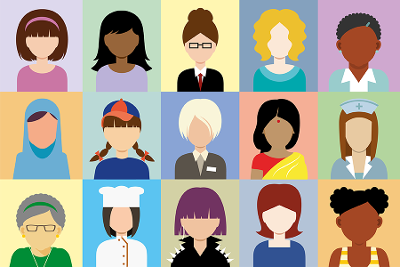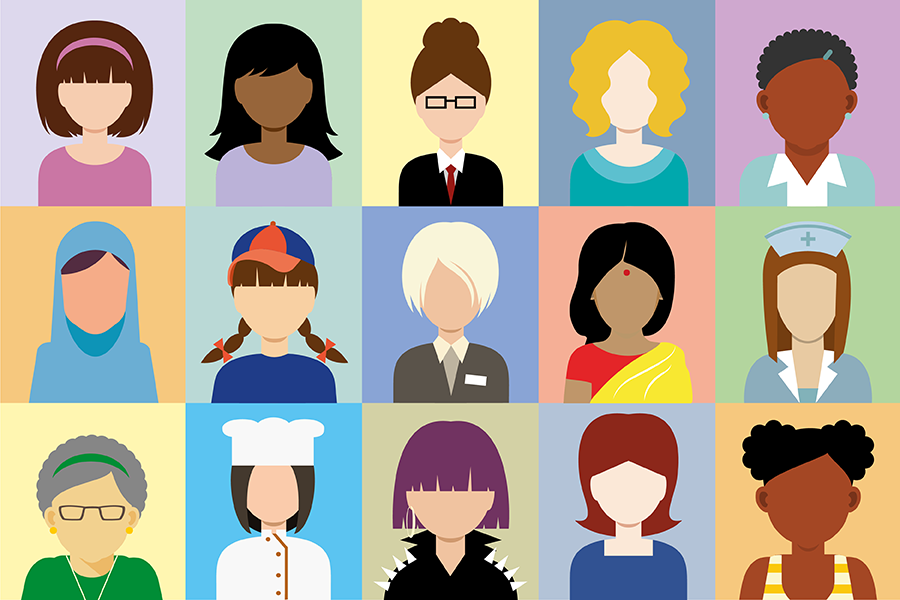Mind the Gap: Women and health inequalities

Gateshead's Director of Public Health has published a new report which highlights that although women live longer than men, they do so in poorer health. This is due to a range of factors created by systemic, historic and social bias that place women and girls within cycles of disadvantage.
"Mind the Gap: Women and health inequalities" is Alice Wiseman's sixth annual report as Director of Public Health for Gateshead. It focuses on how the experiences of girls and women can impact on their health throughout their lives.
Mind the Gap: women and health inequalities (2022)
Alice explained: "It almost goes without saying that as a woman, I've personally experienced everyday sexism, workplace discrimination and the struggles of juggling parenting with work. We know that experiences like these are commonplace and of course frustrating, but what I want to highlight is that they're indicative of much bigger issues that are significantly affecting the health and wellbeing of girls and women here in Gateshead, nationally and across the world.
Gender stereotypes remain stubbornly persistent, with girls and women more likely to take on caring responsibilities, which can limit their career choices and earning potential. As my previous reports have highlighted, there is an unacceptable difference in life expectancy between people living in the most affluent areas compared to those in the most deprived areas and that gap is growing faster for women than for men. With 45% of single parents living in poverty, and 90% of those being single mothers, the cost-of-living crisis is hitting this group the hardest."
Women are also more often affected by issues of safety. A recent survey found that almost half of women in Gateshead said they avoided places because they felt unsafe (compared to 30% of men) and one in 56 women in Gateshead reported domestic abuse in 2021. One in five of those referred to the Domestic Abuse Team were pregnant or had recently given birth.
Councillor Angela Douglas, Chair of the Community Safety Board, said:
"Domestic abuse and violence can happen to anyone, but it disproportionately impacts women, and those affected can often find it hard to escape in fear of making the situation worse. We know that perpetrators of domestic abuse often isolate their partner, making it harder to seek help from family and friends, and women with children will often question whether leaving is best for their family.
This situation is made more difficult for women who are financially disadvantaged. Women are more likely to have caring responsibilities for children and elderly relatives, so may not have access to their own source of income. The cost-of-living crisis is also having a huge impact, with Gateshead Domestic Abuse Team increasingly hearing of those affected not being able to afford a place of their own, pay energy bills, or provide food for them and their family. All these issues can make it even harder to leave an abusive relationship.
As a priority, local authorities, police, health and care services, and community partners need to work together to tackle domestic abuse and provide support victims, survivors, and their children to live a life free from abuse."
The report concludes with a series of recommendations for supporting women and girls to live healthy, fulfilling lives. Alice continued: "Over the last few decades we have made a lot of progress in relation to gender equality, but the content of this report confirms that we still have a long way to go. We need to create conditions that enable women and girls to reach their full potential, which means supporting them throughout pregnancy and beyond, providing well-paid employment with good terms and conditions, tackling violence and abuse, and addressing female-specific health and care needs.
Achieving true gender equality benefits everyone, including men and boys, so we must make these recommendations a reality if we are to make Gateshead a place where everyone can thrive."
This short video highlights some of the report's key findings and recommendations:

Gateshead's Director of Public Health has published a new report which highlights that although women live longer than men, they do so in poorer health. This is due to a range of factors created by systemic, historic and social bias that place women and girls within cycles of disadvantage.
"Mind the Gap: Women and health inequalities" is Alice Wiseman's sixth annual report as Director of Public Health for Gateshead. It focuses on how the experiences of girls and women can impact on their health throughout their lives.
Mind the Gap: women and health inequalities (2022)
Alice explained: "It almost goes without saying that as a woman, I've personally experienced everyday sexism, workplace discrimination and the struggles of juggling parenting with work. We know that experiences like these are commonplace and of course frustrating, but what I want to highlight is that they're indicative of much bigger issues that are significantly affecting the health and wellbeing of girls and women here in Gateshead, nationally and across the world.
Gender stereotypes remain stubbornly persistent, with girls and women more likely to take on caring responsibilities, which can limit their career choices and earning potential. As my previous reports have highlighted, there is an unacceptable difference in life expectancy between people living in the most affluent areas compared to those in the most deprived areas and that gap is growing faster for women than for men. With 45% of single parents living in poverty, and 90% of those being single mothers, the cost-of-living crisis is hitting this group the hardest."
Women are also more often affected by issues of safety. A recent survey found that almost half of women in Gateshead said they avoided places because they felt unsafe (compared to 30% of men) and one in 56 women in Gateshead reported domestic abuse in 2021. One in five of those referred to the Domestic Abuse Team were pregnant or had recently given birth.
Councillor Angela Douglas, Chair of the Community Safety Board, said:
"Domestic abuse and violence can happen to anyone, but it disproportionately impacts women, and those affected can often find it hard to escape in fear of making the situation worse. We know that perpetrators of domestic abuse often isolate their partner, making it harder to seek help from family and friends, and women with children will often question whether leaving is best for their family.
This situation is made more difficult for women who are financially disadvantaged. Women are more likely to have caring responsibilities for children and elderly relatives, so may not have access to their own source of income. The cost-of-living crisis is also having a huge impact, with Gateshead Domestic Abuse Team increasingly hearing of those affected not being able to afford a place of their own, pay energy bills, or provide food for them and their family. All these issues can make it even harder to leave an abusive relationship.
As a priority, local authorities, police, health and care services, and community partners need to work together to tackle domestic abuse and provide support victims, survivors, and their children to live a life free from abuse."
The report concludes with a series of recommendations for supporting women and girls to live healthy, fulfilling lives. Alice continued: "Over the last few decades we have made a lot of progress in relation to gender equality, but the content of this report confirms that we still have a long way to go. We need to create conditions that enable women and girls to reach their full potential, which means supporting them throughout pregnancy and beyond, providing well-paid employment with good terms and conditions, tackling violence and abuse, and addressing female-specific health and care needs.
Achieving true gender equality benefits everyone, including men and boys, so we must make these recommendations a reality if we are to make Gateshead a place where everyone can thrive."
This short video highlights some of the report's key findings and recommendations:
